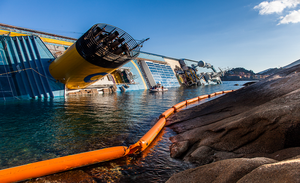Costa Concordia: 10 years after the shipwreck, the analysis on the environmental restoration of the seabed
On 13 January 2012, in the waters of the Giglio Island, the cruise ship Costa Concordia sank in a tragic event, which cost the lives of 32 people, and also caused considerable damage to the coastal environment, especially to the seabed.
Damage determined by the presence of the wreck and by the site activities, necessary to remove and move it away; in addition to the damage caused by harmful substances the ship was loaded with: fuel, heavy oils, paints and detergents.
An Observatory was set up to monitor the proper conduct of operations, whose work is still ongoing and in which representatives of the MiTE, ISPRA, Arpa Toscana and the local authorities involved participate.
The restoration works carried out so far have been more successful than expected. Removed the causes of the loss of posidonia, the transplants carried out in 2016 have shown a doubling of the number of transplanted beams, just as those carried out since 2019 seem to have a similar outcome. Similarly for the gorgonians, the high survival and healing rates have meant that some rock faces have regained their original three-dimensionality and are approaching their natural condition.
Video: the environmental emergencies at sea: the case of “Costa Concordia”

